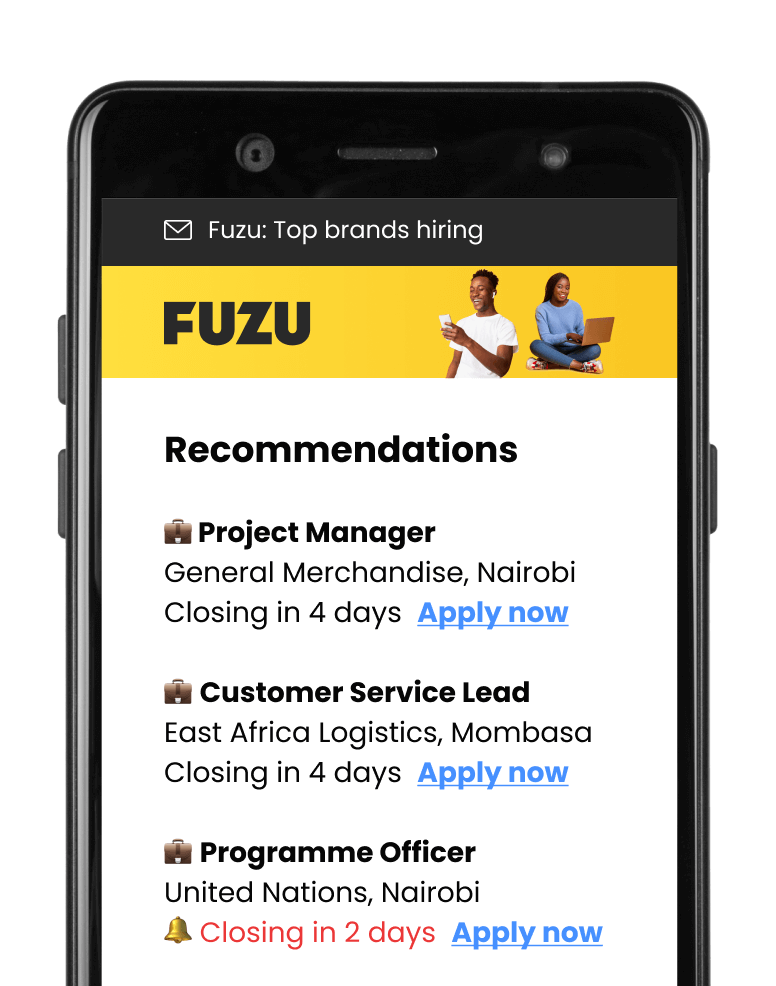RequirementsTo qualify as an advocate for every child you will have:
- An advanced University Degree (Master’s) in Education, Education Policy, Social Policy, or related field
Required Qualifications and Skills:
- Demonstrated strong working knowledge of current global issues and best practice on skills development;
- A minimum of 8 years of experience in education programming, documentation, and reporting;
- A minimum of 5 years of working experience with using education data to inform evidence-based education programming and policy;
- Experience in developing strategy papers;
- Excellent written and oral communication skills, with experience translating evidence for and communicating with a broad range of actors (including government) on sensitive issues;
- Ability to present ideas concisely for diverse audiences and to give practical, actionable advice grounded in evidence and
- Ability to work to tight timeframes and flexibility to adjust to the needs of government and UNICEF.
Other Desired Skills and Attributes:
- Strong working knowledge of global current issues on out-of-school children (MICS, DHIS, UIS, NEDS in Nigeria, and others).
- Strong knowledge of the Nigerian context and understanding of international development issues, including skills development, employability, and youth programming.
- Strong knowledge of the Nigerian political landscape and recent developments in education.
- Experience working with UN agencies or other international development agencies; and A good understanding of UNICEF’s programmatic areas.
How Can You Make a Difference?
Background and Purpose of the Assignment:
- Nigeria is home to approximately 206 million people , 43 per cent of whom are below 14 years of age . By 2030, there will be close to 126 million children in Nigeria . Rapid population growth and the swelling child population will place significant pressure on the education system, including its infrastructure and resources .
- At the same time, this growth means that Nigeria has the potential to reap a dividend from the impending youth bulge, but this will require significant investments in children’s and adolescents’ education and well-being . The country has developed policies that guarantee free and compulsory basic education and has seen increasing access to education in recent years.
- Unfortunately, learning poverty remains an equally important challenge. More than 70 per cent of children of primary school age cannot read with understanding or solve simple math problems , and 50 per cent of primary students on average cannot read or write.
- These gaps in foundational skills are cumulative across the lifecycle, increasing learners’ risk of dropping out and impeding their ability to acquire the skills they need to thrive in the workforce, to be actively engaged citizens and to nurture healthy and prosperous families.
- This learning crisis has been exacerbated by disruptions to education. COVID-19 school closures impacted more than 50 million learners at the peak of the pandemic. Conflict and insecurity in the north and central regions of Nigeria exacerbate education disruption through attacks on schools and internal displacement. School closures due to insecurity in the 2020/2021 academic year affected over 11,000 schools and 1.3 million children for four months.
- Natural disasters also cause interruptions to education; for example, the flooding in Jigawa state forced 159 schools to close and affected more than 4,700 children (2,311 girls) who became internally displaced and had to continue their education remotely.
- To succeed in school, in the workplace and to positively contribute to the development of society, all children and adolescents need access to quality, inclusive learning and skills development opportunities.
- To this end, the Federal Ministry of Education (FME) has developed a National Skills Development Framework (NSDF), with support from UNICEF and relevant partners, that defines core and secondary skills and provides guidance and tools for designing, implementing, coordinating and assessing programmes and interventions that support skills development in Nigeria.
Scope of Work
Under the overall supervision of the Chief of Education, the consultant will report directly to the Education Specialist (Access) and will be responsible for the following over the course of the contract:
- Undertake a desk review of the evidence on employability skills for senior secondary school learners globally, in Africa and in the Nigerian context. The desk review will explore what opportunities are available for employability skills development and what models work.
- Develop, in consultation with different stakeholders, a model for employability skills development for senior secondary school and recommend a vehicle for delivery of the skills.
- Two (2) revisions to the model based on UNICEF and government feedback.
- Develop the following requisite materials:
- Teacher and facilitator training guide
- Teacher and facilitator resources - structured lesson plans and guides
- Materials for delivering mentoring and career counseling in senior secondary school.


